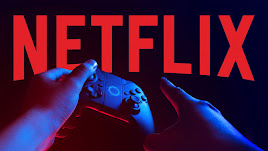As with most groundbreaking creations, the first step is always the hardest. But in this case, the word simplest would suffice. Before it officially launched in 2001, a powerpoint about is was created to explain how it could work with around one hundred and twenty seven slides. The music, animations, and effects came along much later, but the foundation for these innovations had been set over a decade before they ever came to be. One its earliest problems however was competing with the booming dvd industry, and trying to create their own company that could license and create films which could compete with the other giants such as Blockbuster and the upcoming Redbox.
One of the greatest networking ideas that Netflix had at the time was partnering with companies in the gaming industry. At the time, famous corporations like Xbox and Playstation were just starting to be used on televisions, along with Blu Ray players. The era of disc was at an all time peak, and at the time a new era of film was dawning. In order to keep up, Netflix allowed for video game consoles to stream their movies through their devices, allowing a whole new community of consumers to see what sort of content the film industry was up too. In fact, this allowed for some games to be adapted into films and vice versa. Special movies like Spiderman, Transformers, and other popular films all benighted by the partnership that allowed games and films to coexist on the same platform.
The year 2007 was when Netflix really started to announce itself on the big stage. One of their biggest strong suits was adapting to the new technologies quickly, with this new era being no exception. Apple smartphones were the show runners of this time, and allowed Netflix to take their market to the cellular side of the world. Their first app allowed people to stream movies on their phones, taking film to every corner of the world and letting people stream from their pockets. It began as a feature unique Americans, but eventually migrated across the planet as users began to purchase the new Apple smartphone. Once more, their audience was expanded, and a new partnership would bear fruit for years to come. A decade later, Netflix began the biggest film streaming company on the planet as others failed to get over the hurdle which made DvD's obsolete.
Finally, the expansion of this mega film streaming corporation would reap several effects for society as a whole. Binging habits cause viewers to demand more content, making production companies increase their speed and creating more jobs as a result. However, studies have reported that changes like this have made the cable and movie industries suffer, with over 27% of American households now getting rid of their cable subscriptions. Theatre have lost their sense of attraction, now that most can see movies from the comfort of their living room tv or laptop. However, the worst of them as is the mental health side of things. In adolescents, Netflix binging addictions have cause many young adults to lose motivation to converse with the outside world, letting them rely on nothing but their para-social relationships that kept them away from wanting real interactions. Levels of anxiety and depression are common with those who spend too much time on the application, with many mental health experts recommending that time on the app should be monitored and regulated more carefully for everyone.








No comments:
Post a Comment